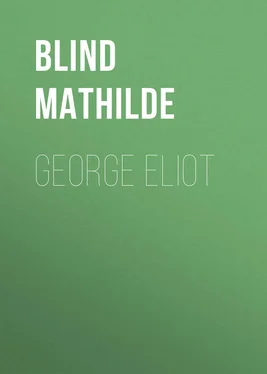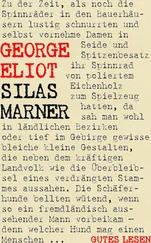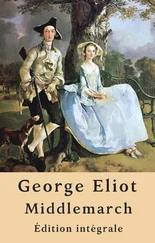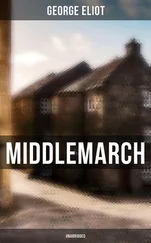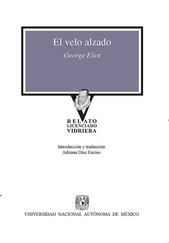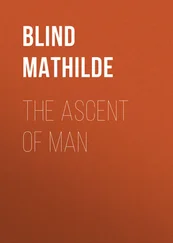Mathilde Blind - George Eliot
Здесь есть возможность читать онлайн «Mathilde Blind - George Eliot» — ознакомительный отрывок электронной книги совершенно бесплатно, а после прочтения отрывка купить полную версию. В некоторых случаях можно слушать аудио, скачать через торрент в формате fb2 и присутствует краткое содержание. ISBN: , Жанр: foreign_antique, foreign_prose, Биографии и Мемуары, на английском языке. Описание произведения, (предисловие) а так же отзывы посетителей доступны на портале библиотеки ЛибКат.
- Название:George Eliot
- Автор:
- Жанр:
- Год:неизвестен
- ISBN:http://www.gutenberg.org/ebooks/36847
- Рейтинг книги:3 / 5. Голосов: 1
-
Избранное:Добавить в избранное
- Отзывы:
-
Ваша оценка:
- 60
- 1
- 2
- 3
- 4
- 5
George Eliot: краткое содержание, описание и аннотация
Предлагаем к чтению аннотацию, описание, краткое содержание или предисловие (зависит от того, что написал сам автор книги «George Eliot»). Если вы не нашли необходимую информацию о книге — напишите в комментариях, мы постараемся отыскать её.
George Eliot — читать онлайн ознакомительный отрывок
Ниже представлен текст книги, разбитый по страницам. Система сохранения места последней прочитанной страницы, позволяет с удобством читать онлайн бесплатно книгу «George Eliot», без необходимости каждый раз заново искать на чём Вы остановились. Поставьте закладку, и сможете в любой момент перейти на страницу, на которой закончили чтение.
Интервал:
Закладка:
By far the most trying consequence of her change of views was that now, for the first time, Marian was brought into collision with her father, whose pet she had always been. He could not understand her inward perplexities, nor the need of her soul for complete inward unity of thought, a condition impossible to her under the limiting conditions of a dogmatic evangelicalism, "where folly often mistakes itself for wisdom, ignorance gives itself airs of knowledge, and selfishness, turning its eyes upwards, calls itself religion." She, on the other hand, after a painful struggle, wanted to break away from the old forms of worship, and refused to go to church. Deeply attached though she was to her father, the need to make her acts conform with her convictions became irresistible. Under such conflicting tendencies a rupture between father and daughter became imminent, and for a short time a breaking up of the home was contemplated, Marian intending to go and live by herself in Coventry. One of the leading traits in her nature was its adhesiveness, however, and the threat of separation proved so painful to her that her friends, Mr. and Mrs. Bray, persuaded her to conform to her father's wishes as far as outward observances were implied, and for the rest he did not trouble himself to inquire into her thoughts or occupations.
From a letter written at this period it appears that the 'Inquiry Concerning the Origin of Christianity' had made a most powerful impression on her mind. Indeed, she dated from it a new birth. But so earnest and conscientious was she in her studies, that before beginning its longed-for perusal, she and a friend determined to read the Bible through again from beginning to end.
The intimacy between the inmates of Rosehill and the girl student at Foleshill meanwhile was constantly growing closer. They met daily, and in their midst the humorous side of her nature expanded no less than her intellect. Although striking ordinary acquaintances by an abnormal gravity, when completely at her ease she at times bubbled over with fun and gaiety, irradiated by the unexpected flashes of a wit whose full scope was probably as yet unsuspected by its possessor. Not but that Miss Evans and her friends must have been conscious, even at that early age, of extraordinary powers in her, destined some day to give her a conspicuous position in the world. For her conversation was already so full of charm, depth, and comprehensiveness, that all talk after hers seemed stale and common-place. Many were the discussions in those days between Mr. Bray and Marian Evans, and though frequently broken off in fierce dispute one evening, they always began again quite amicably the next. Mr. Bray probably exercised considerable influence on his young friend's mind at this impressible period of life; perhaps her attention to philosophy was first roused by acquaintance with him, and his varied acquirements in this department may have helped in giving a positive direction to her own thoughts.
Mr. Bray was just then working out his 'Philosophy of Necessity,' the problems discussed being the same as those which have occupied the leading thinkers of the day: Auguste Comte in his 'Positive Philosophy;' Buckle in his 'History of Civilization;' and Mr. Herbert Spencer in his 'Sociology.' The theory that, as an individual and collectively, man is as much subject to law as any of the other entities in nature, was one of those magnificent ideas which revolutionise the world of thought. Many minds, in different countries, of different calibre, were all trying to systematise what knowledge there was on this subject in order to convert hypothesis into demonstration. To what extent Mr. Bray may have based his 'Philosophy of Necessity' on independent research, or how much was merely assimilated from contemporary sources, we cannot here inquire. Enough that the ideas embodied in it represented some of the most vital thought of the age, and contributed therefore not a little to the formation of George Eliot's mind, and to the grip which she presently displayed in the handling of philosophical topics.
In 1842 the sensation created by Dr. Strauss's Leben Jesu had even extended to so remote a district as Warwickshire. Some persons of advanced opinions, deeply impressed by its penetrating historical criticism, which was in fact Niebuhr's method applied to the elucidation of the Gospels, were very desirous of obtaining an English translation of this work; meeting at the house of a common friend, the late Mr. Joseph Parkes of Birmingham, they agreed, in the first blush of their enthusiasm, to raise amongst them whatever sum might be required for the purpose. Mr. Hennell, the leading spirit in this enterprise, proposed that the translation should be undertaken by Miss Brabant, the accomplished daughter of Dr. Brabant, a scholar deeply versed in theological matters, who was in friendly correspondence with Strauss and Paulus in Germany and with Coleridge and Grote in England. The lady in question, though still in her teens, was peculiarly fitted for the task, as she had already translated some of Baur's erudite writings on theological subjects into English. But when she had done about one half of the first volume, her learned labours came to an unexpected conclusion, as she became engaged to Mr. Hennell, who to great mental attainments joined much winning buoyancy of manner. And on her marriage with this gentleman she had to relinquish her task as too laborious.
Miss Brabant's acquaintance with Marian began in 1843, and in the summer of that year the whole friendly group started on an excursion to Tenby. During their stay at this watering-place the lady who had begun, and the lady destined eventually to accomplish, the enormous labour of translating the 'Life of Jesus' gave tokens of feminine frivolity by insisting on going to a public ball, where, however, they were disappointed, as partners were very scarce. It should be remembered that Marian Evans was only twenty-three years old at this time, but, though she had not yet done anything, her friends already thought her a wonderful woman. She never seems to have had any real youthfulness, and her personal appearance greatly improved with time. It is only to the finest natures, it should be remembered, that age gives an added beauty and distinction; for the most persistent self has then worked its way to the surface, having modified the expression, and to some extent the features, to its own likeness.
There exists a coloured sketch done by Mrs. Bray about this period, which gives one a glimpse of George Eliot in her girlhood. In those Foleshill days she had a quantity of soft pale-brown hair worn in ringlets. Her head was massive, her features powerful and rugged, her mouth large but shapely, the jaw singularly square for a woman, yet having a certain delicacy of outline. A neutral tone of colouring did not help to relieve this general heaviness of structure, the complexion being pale but not fair. Nevertheless the play of expression and the wonderful mobility of the mouth, which increased with age, gave a womanly softness to the countenance in curious contrast with its framework. Her eyes, of a grey-blue, constantly varying in colour, striking some as intensely blue, others as of a pale, washed-out grey, were small and not beautiful in themselves, but when she grew animated in conversation, those eyes lit up the whole face, seeming in a manner to transfigure it. So much was this the case, that a young lady, who had once enjoyed an hour's conversation with her, came away under its spell with the impression that she was beautiful, but afterwards, on seeing George Eliot again when she was not talking, she could hardly believe her to be the same person. The charm of her nature disclosed itself in her manner and in her voice, the latter recalling that of Dorothea, in being "like the voice of a soul that has once lived in an Æolian harp." It was low and deep, vibrating with sympathy.
Читать дальшеИнтервал:
Закладка:
Похожие книги на «George Eliot»
Представляем Вашему вниманию похожие книги на «George Eliot» списком для выбора. Мы отобрали схожую по названию и смыслу литературу в надежде предоставить читателям больше вариантов отыскать новые, интересные, ещё непрочитанные произведения.
Обсуждение, отзывы о книге «George Eliot» и просто собственные мнения читателей. Оставьте ваши комментарии, напишите, что Вы думаете о произведении, его смысле или главных героях. Укажите что конкретно понравилось, а что нет, и почему Вы так считаете.
